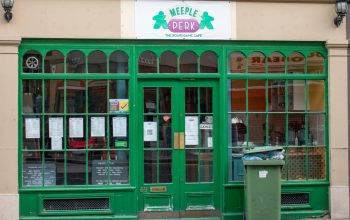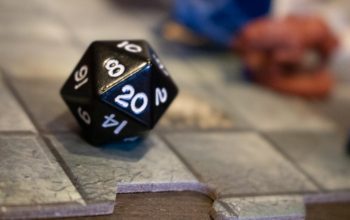The hopes and anxieties of returning to in-person RPG
With social isolation a real consequence of lockdown which progressed month after month, being able to continue to play DnD and other RPG games was cited by many as helping to sustain social contact and mental wellbeing. The popularity of the hobby was such that Dungeons & Dragons achieved its ‘biggest year yet’ in 2020, with a 33% sales growth.
After a period of a series of localised lockdowns, and further COVID wave scares, 2022 marked for many, including those in the RPG communities within Newcastle, a return to the in-person events and play many had been without for two years.
Moving to virtual tabletops
Alex Griggs, who runs a game at a Newcastle RPG club called Nerdcastle, found that most of the games they were involved in moved online, once it stopped being safe or legal to continue in person. For Alex, the move allowed the opportunity to play more often, with one of their games moving from being monthly to weekly during the lockdown and continues to be so.
“At the start of the pandemic, I was unemployed,” Alex says. “Basically a lot of trying to find work, and then, you know, not much else. Couldn’t go out, couldn’t see friends, stuck at home. So having that online, having that social connection, as well as the escapism in the game, that definitely helped a lot.”

Mica Hind, one of the organisers of Nerdcastle, had previously been reliant on roleplaying online due to a surgery they had had a few years prior to the pandemic. They believed access to the hobby through virtual means helped during the pandemic, as well as before, in building a cross-distance community, and being a platform for players with social anxiety. However, that does not mean it is without flaws:
“You can make use of a lot more fancy technology and special effects in a virtual tabletop situation, but there are limits to communication, obviously. The delays and problems that come from conference calls and so forth. And really, roleplaying has always been its best when its a group of people sat around a table, kitchen or otherwise.”
For players Tara Khalid and Eoin Hunter, the lockdown provided them with an opportunity to start playing regularly, when before commitments had kept them from the hobby.
The difficulties of roleplay through video call

The disconnect through having to roleplay via a video call was a frustration other players also felt. Alice Hewitt, who moved to online play due to an immunocompromised family member, as well as frontline healthworkers as players, relayed the difficulty in being able to have side discussions on strategies on a video call.
You can’t read the emotions, you don’t get the eye contact, you don’t see someone physically shuffling at an uncomfortable moment, which allows you to regauge and reassess the feeling in the room and the direction of the game.
Barry Dunn
Barry Dunn, a schoolteacher who also ran games as an extra-curricular activity, explained the difficulty as a DM in gaging the engagement of the players, or even discomfort due to the material, and being able to reassess the direction of the game. Another DM, Daniel Ingram, noted one could not expect to avoid home distractions, that could interrupt and break the immersion of play.
Returning to normality?
Various players returned to play at different times. Waleed Zahid, the incoming President of Newcastle University’s TableTop Society, spoke of how members of the Society were excited to start playing as soon as it was legally allowed to. Conversely, Daniel Charlton, another member of Nerdcastle, expressed hesitation due to having a son and not wanting to get or pass on illness, despite precautions that were in place. Both Daniel Ingram and Alice Hewitt were worried about using public transport and protecting family, respectively, and so despite eagerness to play in-person, had both still yet to do so.




